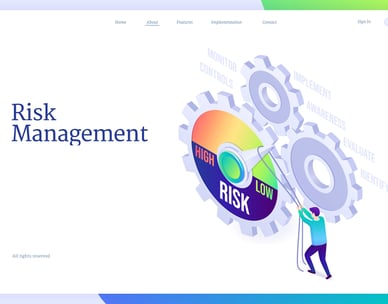9 Money Management Techniques to improve your finances
Master Your Finances with Top 9 Money Management Techniques: Take Control of Your Money Today!
FINANCIAL MANAGEMENT
Welcome to our blog on money management techniques! We all want to lead a financially stable and stress-free life, but achieving that can be challenging without the right strategies. In this post, we'll explore some effective money management techniques that can help you take control of your finances and work towards your financial goals. From budgeting and saving tips to smart investing and debt management, we've got you covered. Whether you're just starting your financial journey or looking to improve your existing money habits, stay tuned for valuable insights and practical advice that will empower you to make the most of your hard-earned money. Let's dive in and unlock the keys to financial success!
Money management: Money management: Exactly what does that mean?
The art of controlling our cash wisely is known as money management. It entails exercising due diligence while deciding how to earn, spend, save, and invest our money. We can plan where our money goes by making a budget, ensuring that we can meet our necessities, put money away for the future, and keep out of debt. Being conscious of our expenditures enables us to keep on track with our monetary objectives, such as debt repayment or vacation savings. Regular savings and wise investment decisions can also result in financial security and a better future. Overall, managing our money involves taking charge of our spending and making decisions that result in a stable and prosperous existence. Below are some money management tips to help you restore control and, most importantly, peace of mind:
1. Budgeting: In the field of money management, budgeting is a fundamental and essential concept. At its foundation, budgeting comprises creating a strategic plan that directs the distribution of one's income with an emphasis on paying for necessary expenses, saving money, and making wise financial decisions. Individuals and households can acquire insightful knowledge into their financial situation and a better understanding of their spending patterns and habits by creating a well-structured budget. They are better able to regulate their finances and make more educated decisions because to their increased financial awareness. When it comes to attaining financial objectives, such as setting up an emergency fund, paying off debts, saving for future milestones, or starting the process of building wealth, budgeting is a powerful tool.People can create a path to long-term financial security, stability, and prosperity by adhering with discipline to a well created budget.
2. Saving: Another essential component of good money management is saving, which involves setting aside some of one's income for future needs or unforeseen emergencies. It is a methodical approach that encourages financial security and gives people the ability to reach their financial objectives. By consistently setting aside a portion of their income, people can build up an emergency fund for unforeseen costs or towards significant life goals like purchasing a home, paying for college, or making retirement plans. This wise use of resources not only makes sure that financial goals are within reach but also serves as a safeguard against unforeseen financial difficulties. Savings fosters a sense of fiscal responsibility by pushing people to live within their means and make deliberate decisions regarding their spending patterns. Saving is not only about building up a bank account. Individuals can lay a solid basis for financial stability, increased financial independence, and the pursuit of long-term financial well-being through regular and thoughtful saving habits.


3. Debt management: Responsible managing and repayment of debts, such as credit card balances, loans, and mortgages, are an essential part of good money management. It requires implementing responsible measures to reduce debt loads and stop accruing high-interest payments. People may protect their credit score, which is essential to their financial stability, by carefully managing their debts and paying their bills on time. A high credit score increases borrowing options and qualifies a person for future loans with more favourable terms. Determining a balanced financial strategy through debt management enables people to take on their financial obligations and work towards a more secure and debt-free future.
4. Investing: Another component of money management, investing is selecting wisely and strategically which assets or financial instruments to invest in with the aim of accumulating wealth over time. Investing offers people the chance to possibly produce returns and reach their financial objectives as part of money management. Stocks, which represent ownership in corporations, bonds, which are debt securities, mutual funds, which pool money from many investors to invest in a diversified portfolio, real estate, which involves property ownership, and other assets are just a few of the many options available to investors. Each sort of investment has a unique risk and return profile, and Before making investment decisions, people must carefully


consider their risk tolerance and financial goals. People can use the power of investment to increase their wealth and ensure a more prosperous financial future by understanding the workings of the market, doing extensive research, and taking a disciplined approach.
5. Financial Goal Setting: The next essential element of efficient money management is financial goal setting, which is determining and outlining specific financial targets. Setting clear and attainable financial objectives gives direction and purpose to money management, whether it's for saving for a specific vacation, creating an emergency fund for unforeseen events, buying a car, or preparing for a pleasant retirement. Individuals can ensure that their efforts are in line with their objectives by expressing these goals so that they can prioritize their financial choices and allocate resources accordingly. Setting clear, attainable goals enables people to monitor their progress, maintain motivation, and make wise financial decisions that support the attainment of their ideal financial future.
6. Expense tracking: This fundamental discipline of money management entails diligently documenting and keeping track of one's spending patterns and cash outflows. People can obtain insightful knowledge into their spending habits and spot places where money is being spent by keeping meticulous records of their expenses. They are better able to identify unneeded or frivolous spending thanks to their increased financial awareness, and they can decide where to decrease costs and practice more financial restraint. The act of tracking expenses assists people to keep a balanced budget, ensuring that their money is properly allocated to meet necessities and reach financial objectives. The ability to assess financial progress, make required corrections, and maintain progress toward overall financial stability and success is another advantage.
7. Risk management: Risk management, a crucial component of financial planning, focuses on identifying and reducing potential threats to one's financial security. Finding areas where unforeseen circumstances or uncertainties could negatively affect one's financial stability and future aspirations is a necessary step in evaluating financial risks. People can choose insurance protection against certain hazards, such as health, life, property, or liability insurance, to manage these risks. Making an estate plan also ensures that assets are protected and distributed in accordance with one's preferences, lessening the financial burden on surviving family members in the case of death or incapacity. Investing money across a variety of asset classes to minimize exposure to any one market or investment risk is another essential risk management method. Individuals can strengthen their financial resiliency, protect their assets, and ensure a more stable and predictable financial future by implementing thorough risk management strategies.


8. Financial education: It is the constant process of learning about and comprehending different financial methods and personal finance concepts. It includes gaining knowledge of tax laws, retirement planning, debt management, investing, saving, and other financial topics. People may build and improve their money management abilities through ongoing financial education, which enables them to make wise and educated financial decisions. People can make the most of their financial decisions and more successfully pursue their financial objectives by remaining informed about the constantly shifting financial landscape, learning about various investing opportunities, and practicing risk management strategies. Financial education also increases financial stability, eases financial stress, and encourages financial confidence, all of which contribute to improved financial results and a more stable financial future.
9. Long-term financial planning: Creating a strategic, all-encompassing strategy to achieve financial goals throughout various life phases is another essential part of comprehensive money management. With an emphasis on achieving financial security and success in the long run, it takes into account a variety of milestones, including education, housing, retirement, and estate preparation. Individuals can define particular financial goals, estimate the resources needed to reach them, and put measures in place to gradually achieve those goals by developing a well-thought-out long-term financial plan.Long-term financial planning also takes into account variables like inflation, market swings, and shifting personal circumstances to make sure the plan is flexible and resilient to unforeseen events. Individuals can confidently manage life's various stages, grow wealth gradually, and work toward having a financially comfortable and rewarding future by following a professionally constructed long-term financial plan.
The ability to strive toward accomplishing personal and financial goals as well as financial security can all be a result of good money management techniques. It's crucial to adjust money management techniques to specific scenarios and to be flexible as financial circumstances change over time.


